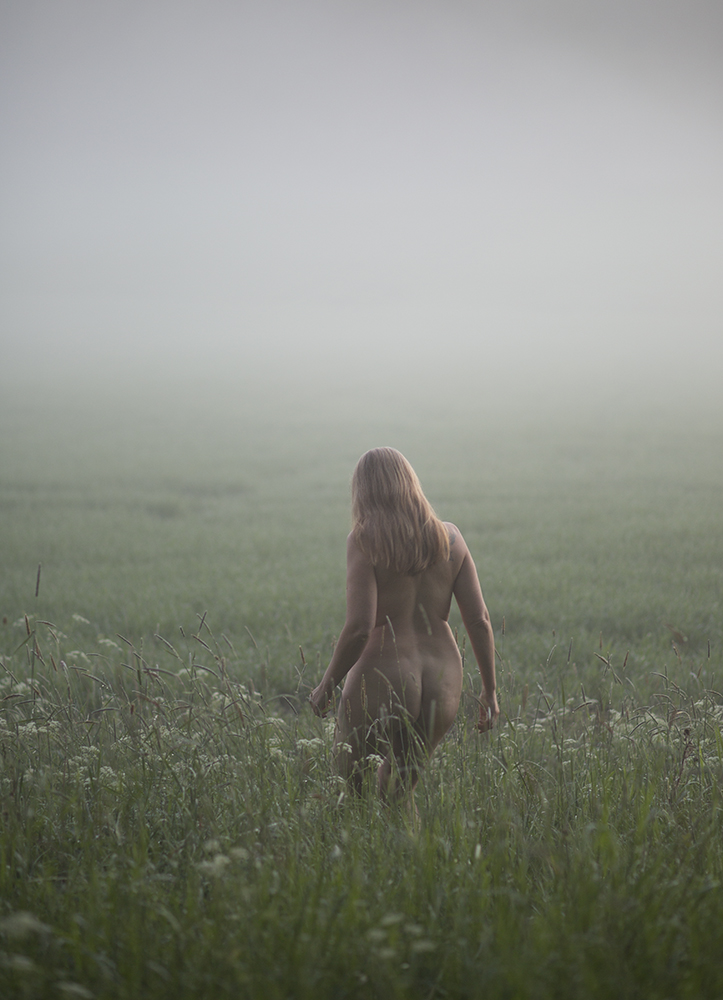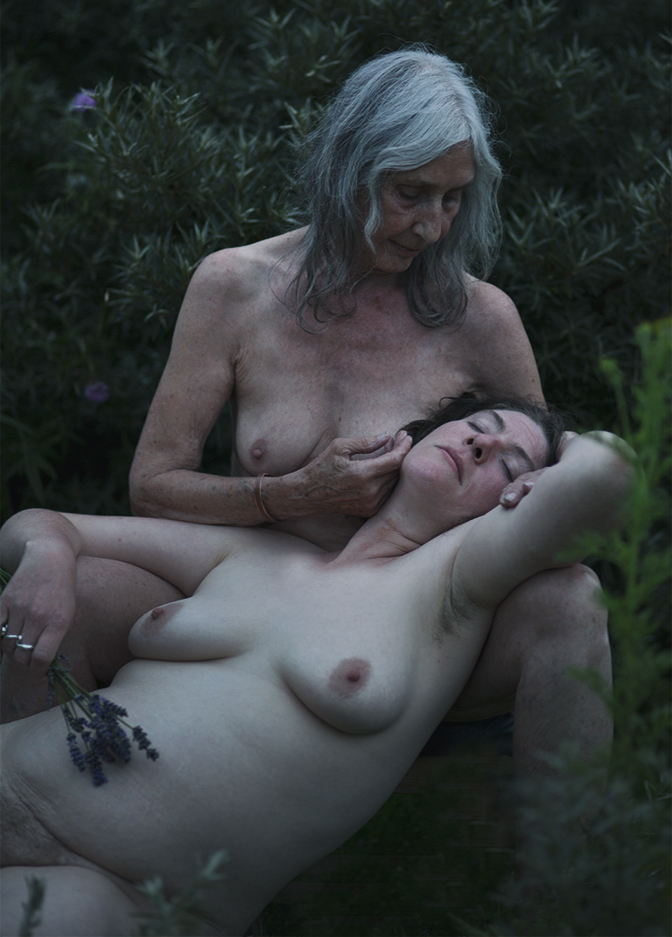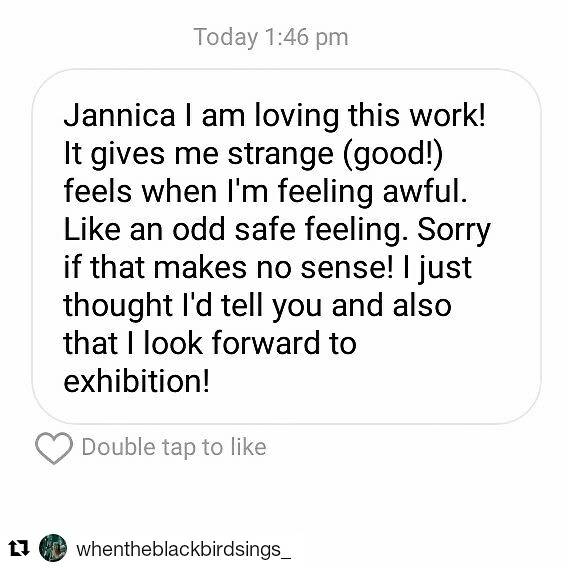When the Blackbird Sings (2016-2017) focuses on the female body and its links with nature.
The compelling works depict naked women of all ages as well as poetic shots of flowers in water. The subjects are family, friends and acquaintances of the artist, always posing outdoors and at twilight. Honey shot the fascinating images over the course of a whole year, exclusively on every full and new moon, starting at the October 2016 Supermoon. When the Blackbird Sings is named after the bird which signals twilight with a song; while shooting the series Honey was stricken by the song’s memento mori-undertones.
The resulting photographs unveil lyrical still lifes alongside delicate moments of tenderness and unashamed femininity, and celebrate the beauty of the female form at any age. While some of the sitters are smiling directly at the camera, others are looking away from it, almost blending into the surrounding setting of moss and trees. The colourful flowers, including daisies and passion flowers, are captured resting on the surface of Edinburgh’s Water of Leith. Honey shot across Scotland and Sweden to illustrate her attachment to both her adoptive and home countries.
Shooting at twilight allowed Honey to challenge the limitations of her chosen medium, in part for the time constraint (twilight only lasts 15-20 minutes), but also for the particular blue hue the light takes on during that time. While most photographers consider it unflattering for theirs subject matter and shy away from it, Honey explores its potential to offer a glimpse of an ephemeral moment in the 24 hour-cycle. When the Blackbird Sings also delves into the significance and symbolism of dusk and explores the ethereal quality of twilight; an in-between moment which doesn’t belong to either day or night, and which Honey sees as an emotional, reflective pause in her day.
When the Blackbird Sings started when Honey felt compelled to reaffirm her own ‘feminine voice’ in the face of personal challenges and male-dominated political events - in particular the recent death of her grandmother and the US elections. By basing her shooting schedule on moon cycles - an intrinsic feminine rhythm - Honey channeled the earth’s natural rhythms into her work, and explored her own reconnection to womanhood and femininity.
Honey’s work is often concerned with the female body and the place of women in society. In 2011 she spent two months photographing Edinburgh strippers, providing a candid and sensitive insight into a world rarely captured. Honey is a successful commercial photographer whose previous work focuses on fashion, journalism and music photography. Her award-winning images has been published in The Guardian, Los Angeles Times, Vogue, Dazed & Confused, Aesthetica Magazine. In 2013 she spent time in the native Mohawk reservation in Canada, working on a photography project related to identity and belonging.
Jannica Honey was born in Stockholm, Sweden in 1974. She moved to Edinburgh to study photography and digital imaging at Telford College, after completing a BA in Humanities (anthropology and criminology) at Stockholm University in 1998. She won the prestigious Fuji Award for her fashion photography in 2003. She lives and works in Edinburgh.



